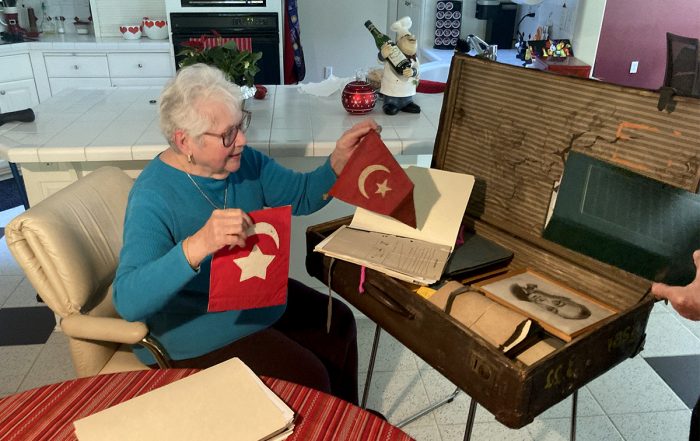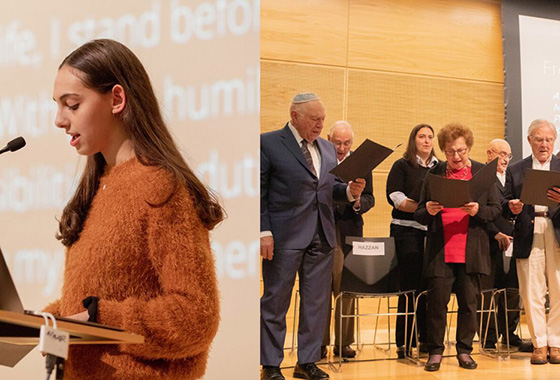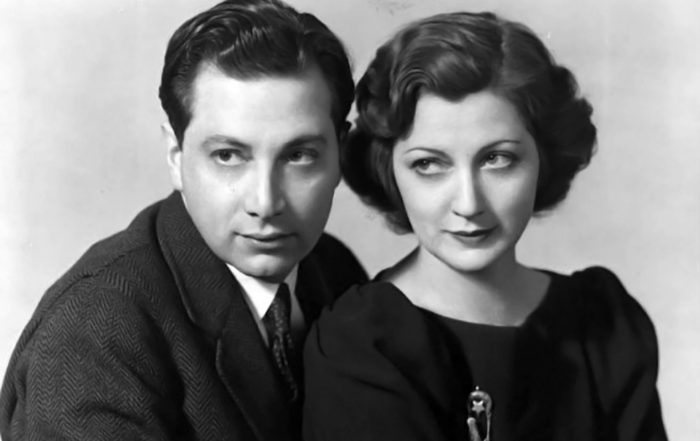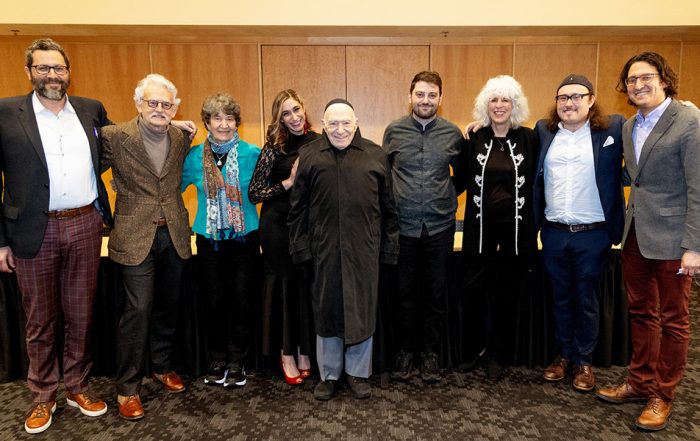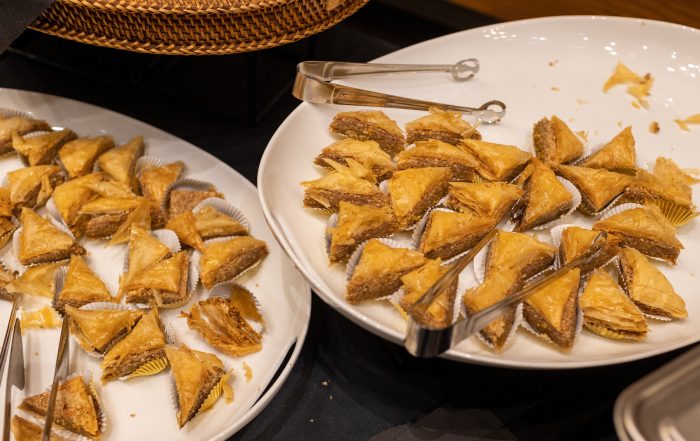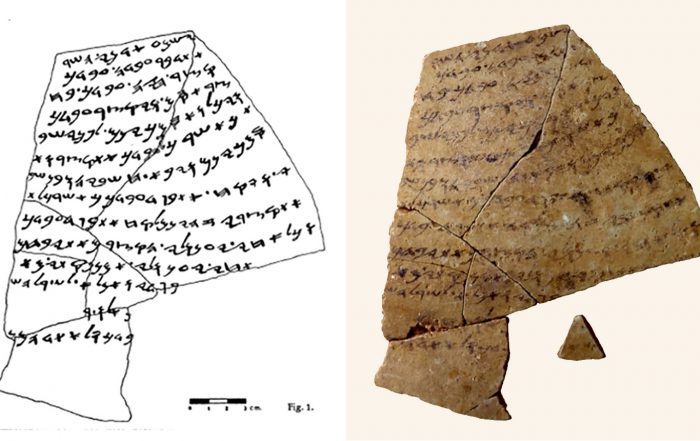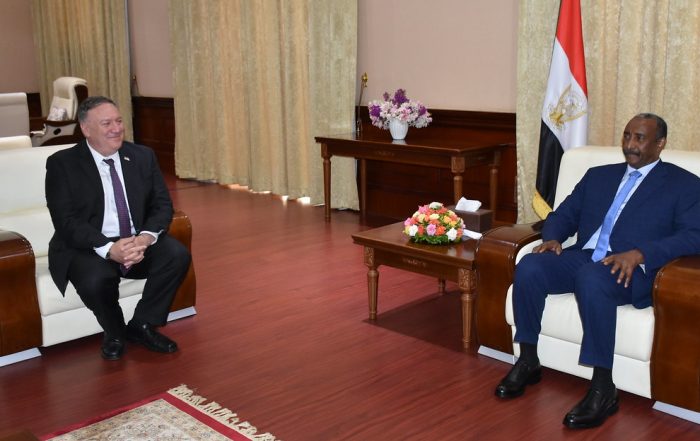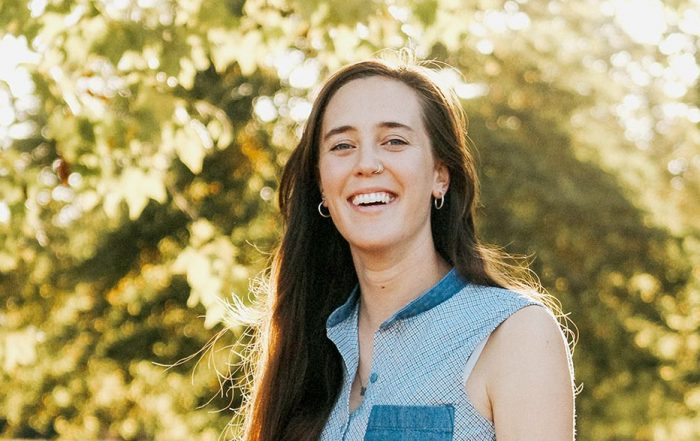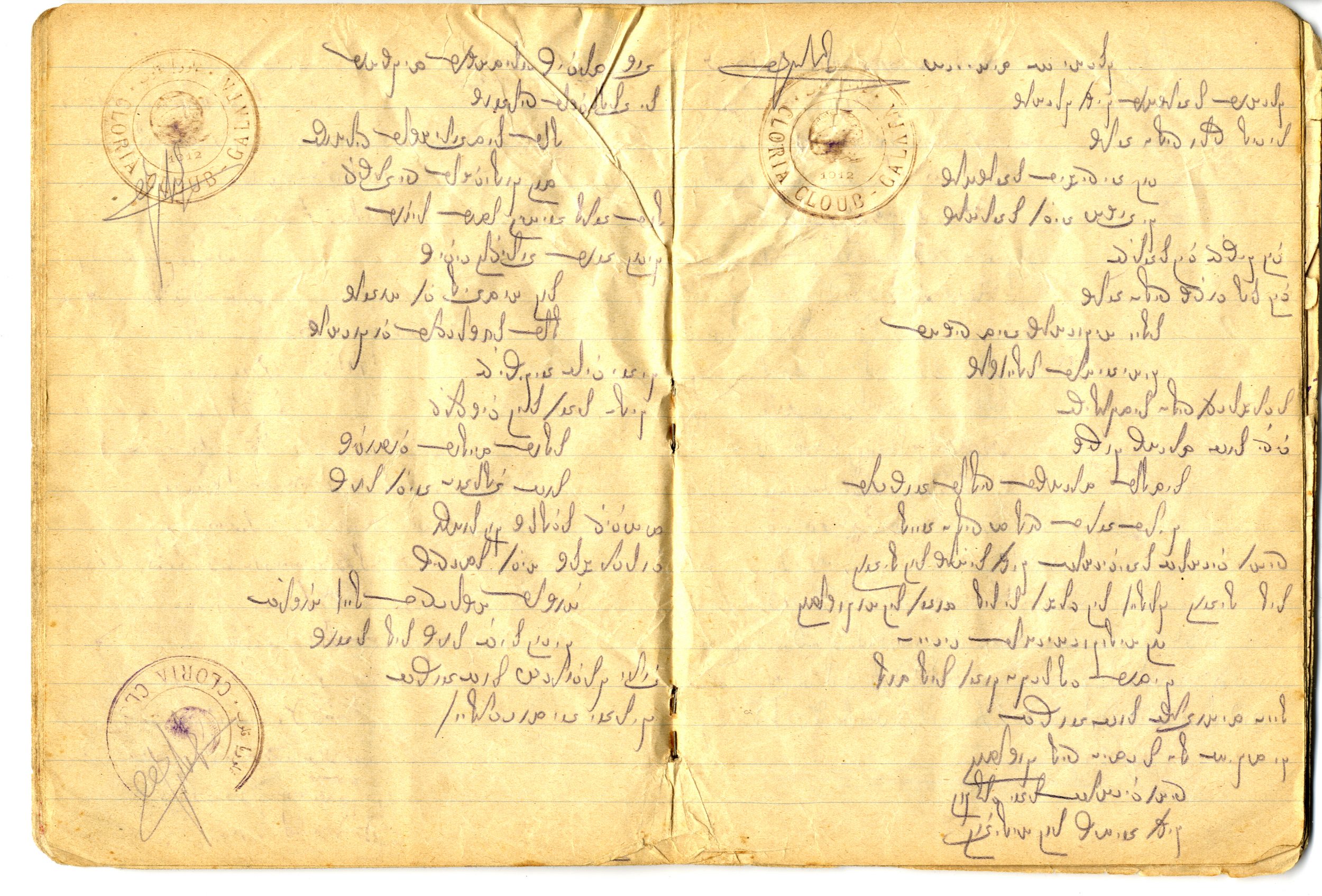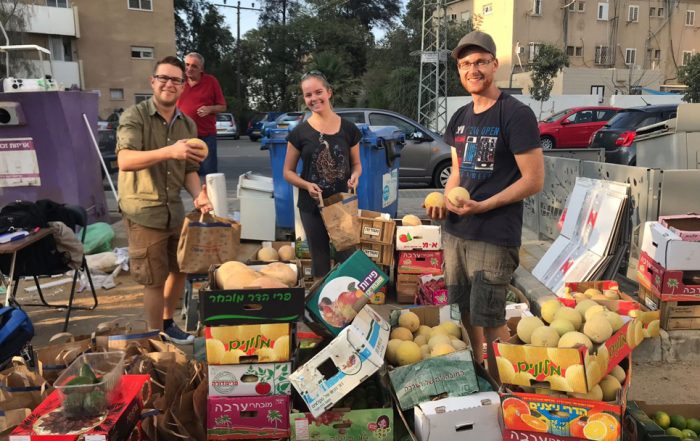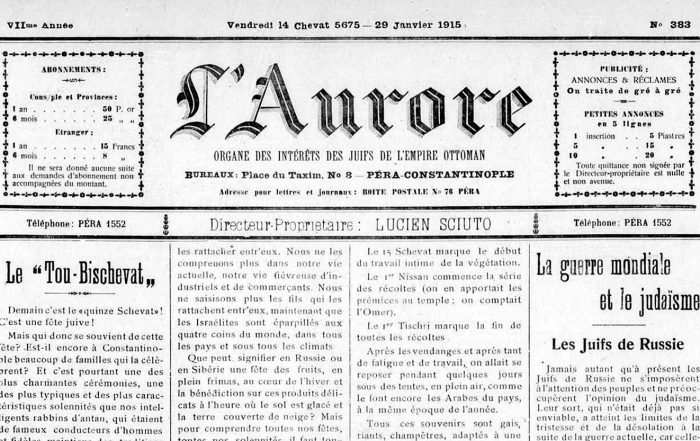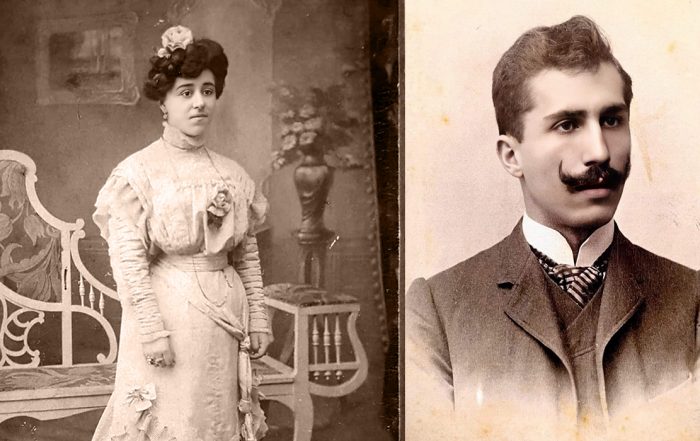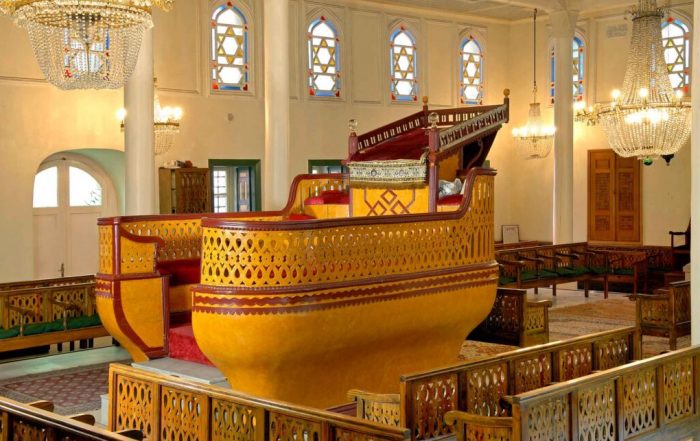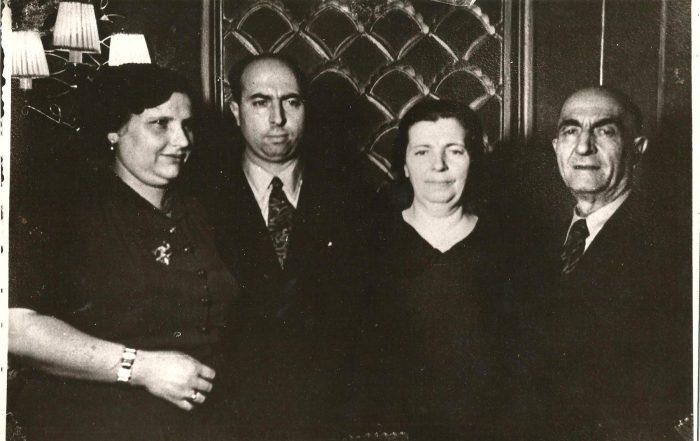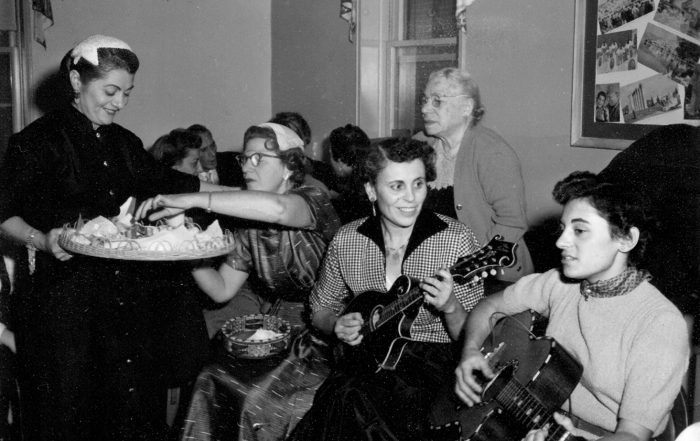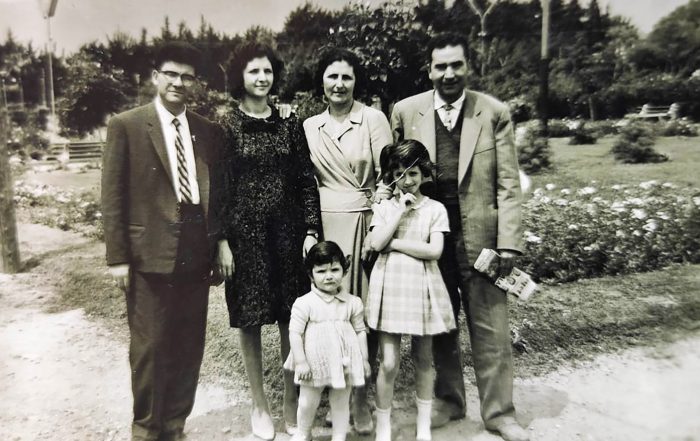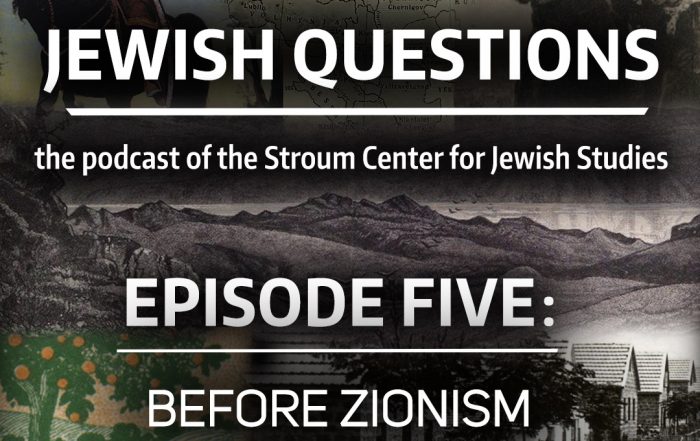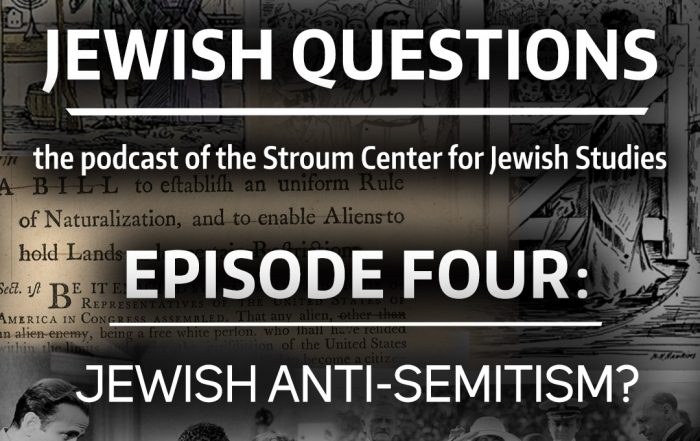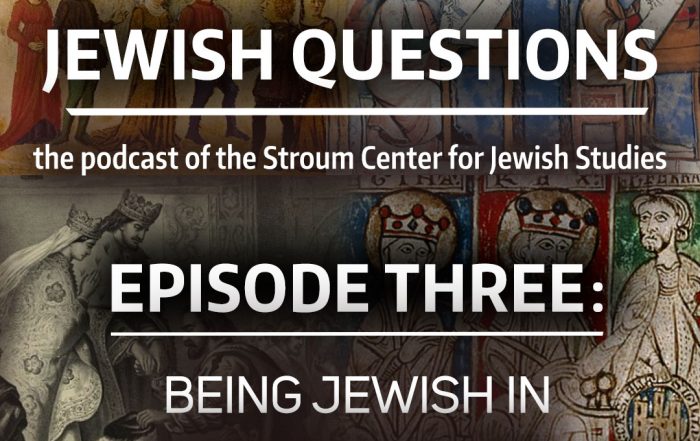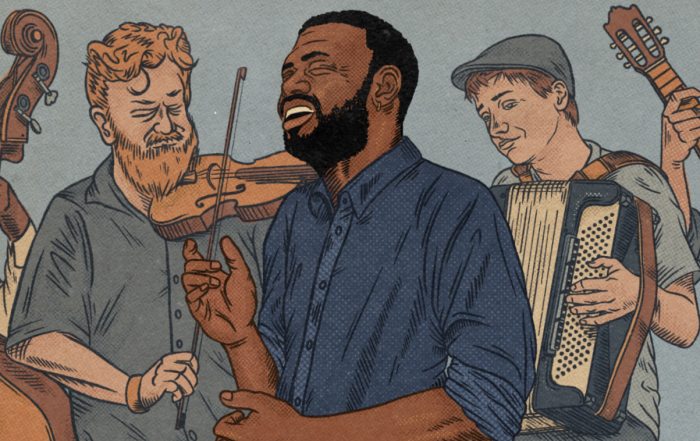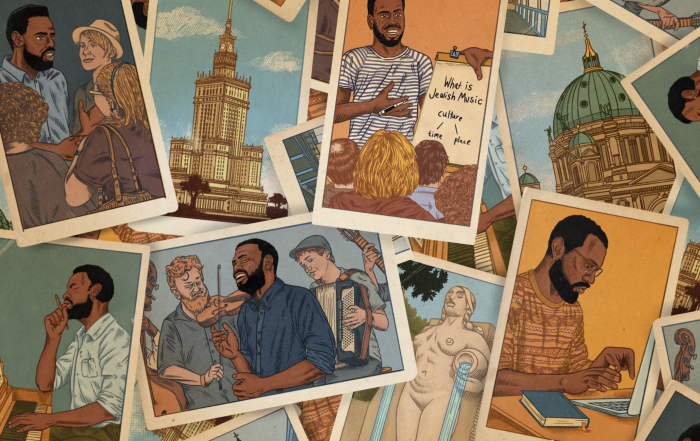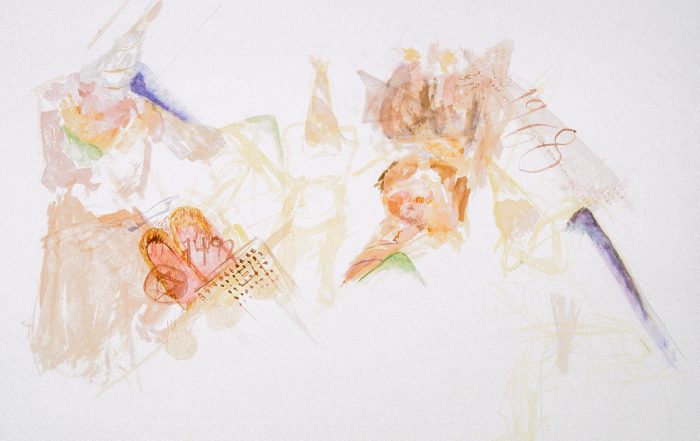
A Turkish Jew in Nazi Germany: A family’s incredible story of survival, and a museum in a suitcase
While researching Jewish refugees of Nazi Germany, graduate fellow Joana Bürger uncovered the incredible story of a Sephardi-Catholic-German-Turkish family's survival during the Holocaust.
Ladino Day 2022: The Future of Ladino
On the tenth anniversary of Ladino Day, UW's Sephardic Studies Program presents four experts from different generations, all working to revitalize Ladino (Judeo-Spanish), the traditional language of Sephardic Jews.
VIDEO | 10th Annual Ladino Day — The Past, Present, and Future of Ladino
On the tenth anniversary of Ladino Day, UW's Sephardic Studies Program presents four experts from different generations, all working to revitalize Ladino (Judeo-Spanish), the traditional language of Sephardic Jews.
Arts & Culture
Your favorite Hollywood actor probably has ties to the Yiddish theater, thanks to Stella Adler and her renowned acting method
Stella Adler, famous mid-century actress and one of the United States' foremost acting instructors, had deep ties to the Yiddish theater scene in New York City. Graduate fellow Amna Farooqi explains.
Muestros Artistas [Our Artists]: Bringing Sephardic Art and Community Together at the UW
Author Hannah S. Pressman reflects on her experience attending the inaugural 'Muestros Artistas' [Our Artists] Sephardic Arts Symposium and speaking with artists and others who were involved.
Food for thought: Learning culture, cooking, and verb conjugations through Sephardic recipes
Student Stephanie Dossett recalls her experience learning from Professor Canan Bolel in the Ladino Language and Culture course, which inspired her to cook and bake Sephardic foods.
Hebrew & Israel Studies
What is an ostracon? How the “scrap paper of the ancient world” offers glimpses of life in biblical times
Pieces of broken pottery ("ostraca") were commonly used to write letters, receipts, and notes in the ancient world, and these fragments show how biblical writings connect to real-world concerns of the time, writes graduate fellow Corinna Nichols.
The Sudan-Israel normalization process: A tactical move but a strategic hazard
Under the leadership of Benjamin Netanyahu and General Abdel Fattah al-Burhan, Israel and Sudan are close to establishing historic diplomatic ties — but outside of the democratic process. Graduate fellow Yasir Zaidan explains.
Ethics and animals in the Bible: Why ancient Israelites thought of birds as moral examples to follow
Though present-day moral philosophers might disagree, in ancient times, animals like birds were seen as tuned in to the divine will and exemplars of right living. Graduate fellow Forrest Martin explains.
Personal History
What I learned from majoring in Jewish Studies and studying abroad in Israel and London
Senior Lily Rosencrantz reflects on what she learned in her time with Jewish Studies, both at the University of Washington and abroad.
Learning Ladino, a Language I Already Knew
Graduate Fellow Oscar Aguirre-Mandujano specializes in Ottoman Turkish history, but his Jewish Studies research project has led him to a rare Ladino manuscript.
What a year in Israel taught me about community
Finding a truly international community was why opportunity grant winner Marissa Gaston decided to spend a whole year studying abroad in Israel.
Jewish History & Thought
A Jewish, feminist, Ottoman gynecologist: A portrait of a physician from 19th-century Ottoman Istanbul
Graduate fellow Büsra Demirkol tells the story of the Romanian Jewish doctor who chose to live in Ottoman Istanbul and became a prominent member of its Jewish medical community — and an outspoken feminist.
A descendant of a crypto sect of converts to Islam is challenging notions of Jewish identity
Reclaiming Jewishness can be difficult for people whose families converted long ago — especially for descendants of the "Dönme" in Turkey, writes graduate fellow Sasha Marie Ward.
The religion of law and the law of religion: A 16th-century Ottoman murder mystery shows the rich history contained in Jewish and Muslim legal “questions and answers”
Religious legal scholars' explanations of their reasoning, called "questions and answers" in Hebrew, are a valuable source for historians, writes graduate fellow Elyakim Suissa.
Sephardic Studies
Si Kere El Dio
Winner, general category. A conscripted husband miraculously reunites with his pregnant wife after fighting in the Balkan Wars in the Ottoman army — the great-grandfather and great-grandmother of author Nuia Menda Malki.
Mother, a Memoir
Runner up, general category. Gloria DeVida Kirchheimer offers a hilarious tribute to her feisty, theatrical mom, who came from Alexandria, Egypt, to New York in the 1930s.
Las Validjas
Winner, student category. Liza Cemel tells the story of her family's history, first across cities in Turkey, then across countries, bringing their validjas of memories and relationships with them.
Digital Jewish Studies
PODCAST | Jewish Questions, Episode 5: Before Zionism — Liora Halpern
Present-day discussions of anti-Semitism often involve Israel and the Zionist movement… but before the 20th century, Jews’ and Jewish scholars’ understandings of anti-Semitism were completely connected with Europe and Christianity. In the last episode of our series, guest Liora R. Halperin looks at how 19th-century Jewish settlers to Ottoman Palestine were influenced by the anti-Semitism they experienced in the Russian Empire
PODCAST | Jewish Questions, Episode 4: Jewish Anti-Semitism? — Devin Naar
Can Jews be anti-Semitic against other Jews? In this episode, guest Devin E. Naar looks at the history of Jewish prejudice against other Jews in the United States, from the very first American Jewish settlers in the 1600s to twentieth-century efforts to exclude Jews from the Muslim world from Jewish institutions — as American Jews struggled to hold on to their “precarious whiteness.”
PODCAST | Jewish Questions, Episode 3: Being Jewish in Medieval Spain — Ana Gómez-Bravo
Has anti-Semitism always been the same, or have ideas about Jewishness, and suspicion towards Jews, changed over time? In this episode, guest Ana Gómez-Bravo helps to answer these questions by looking at the lives of Jews and “conversos” (Jewish converts to Christianity) in medieval Spain, exploring how Catholic authorities tried to define and restrict their Jewish and converso residents.
Videos
VIDEO | Stroum Lectures 2023 Pt. 2 — Between Me and the Other World: A Tikkun
In a multi-faceted performance, Anthony Russell and accordionist Dmitri Gaskin explore W.E.B. DuBois' provocative question, "How does it feel to be a problem?" refracted through the texts and musical idioms of the African American South and Jewish Eastern Europe.
VIDEO | Stroum Lectures 2023 Pt. 1 — “Melodeklamatsiye”: A Yiddish Performance Genre 🎼
Anthony Russell and accompanist Dmitri Gaskin perform a combination of oration and art music that investigates disparate elements—Black religiosity, the music of Chopin, queerness, the ambiguities of diaspora—through the mediums of Jewishness and sound.
VIDEO | Inaugural “Muestros Artistas” Sephardic Arts Symposium
UW's Sephardic Studies Program and Stroum Center for Jewish Studies showcases six Sephardic artists from different creative backgrounds, and explores what exactly makes Sephardic art "Sephardic".

